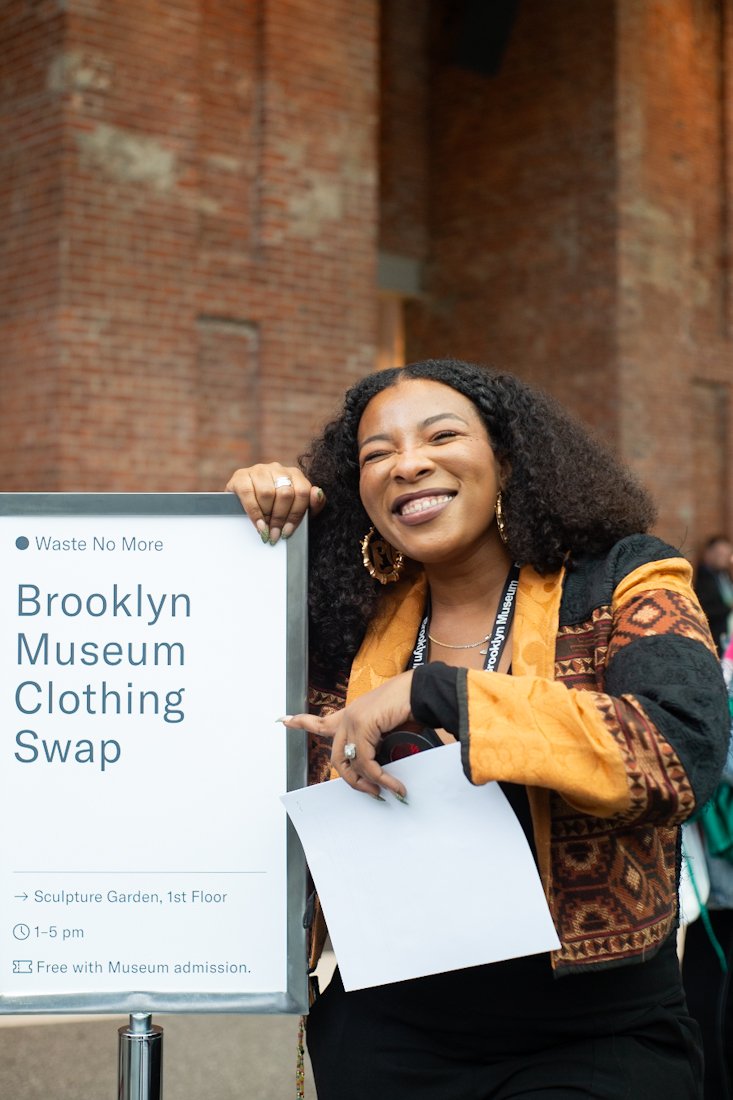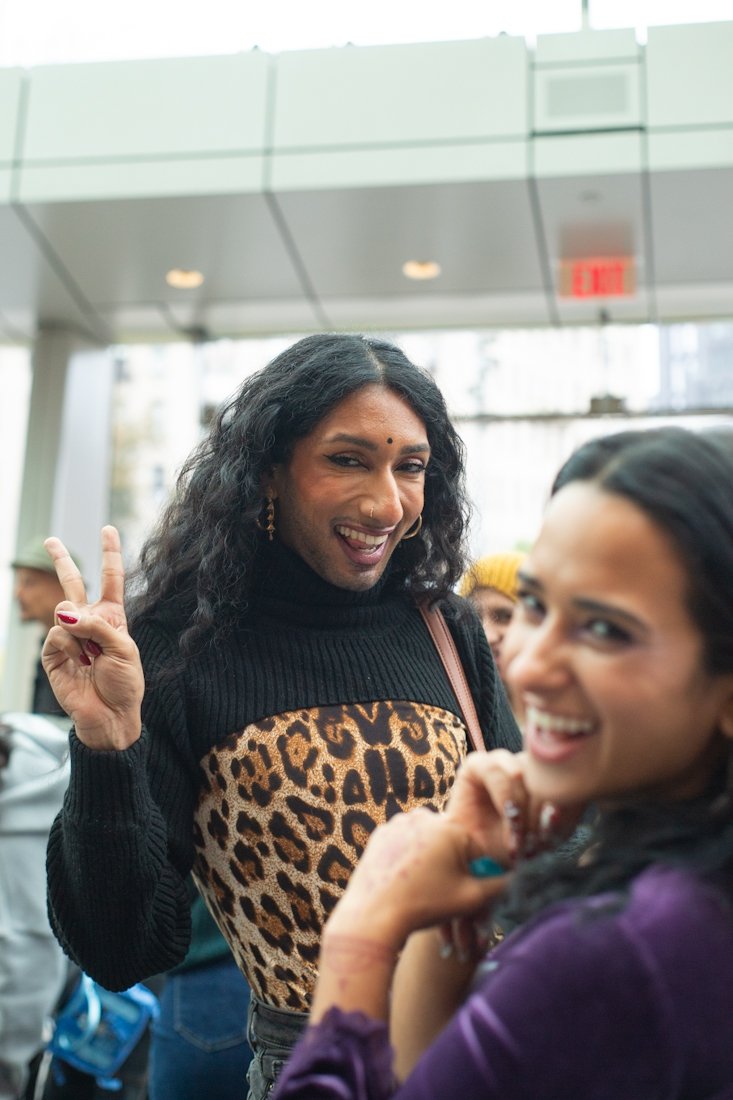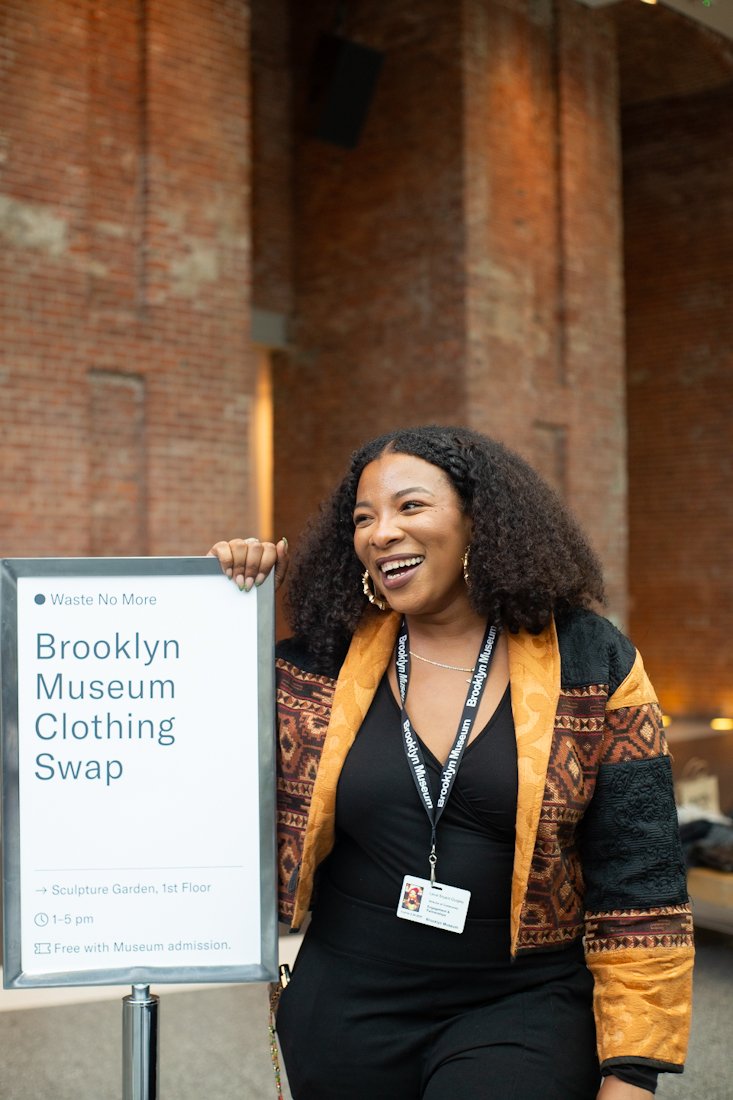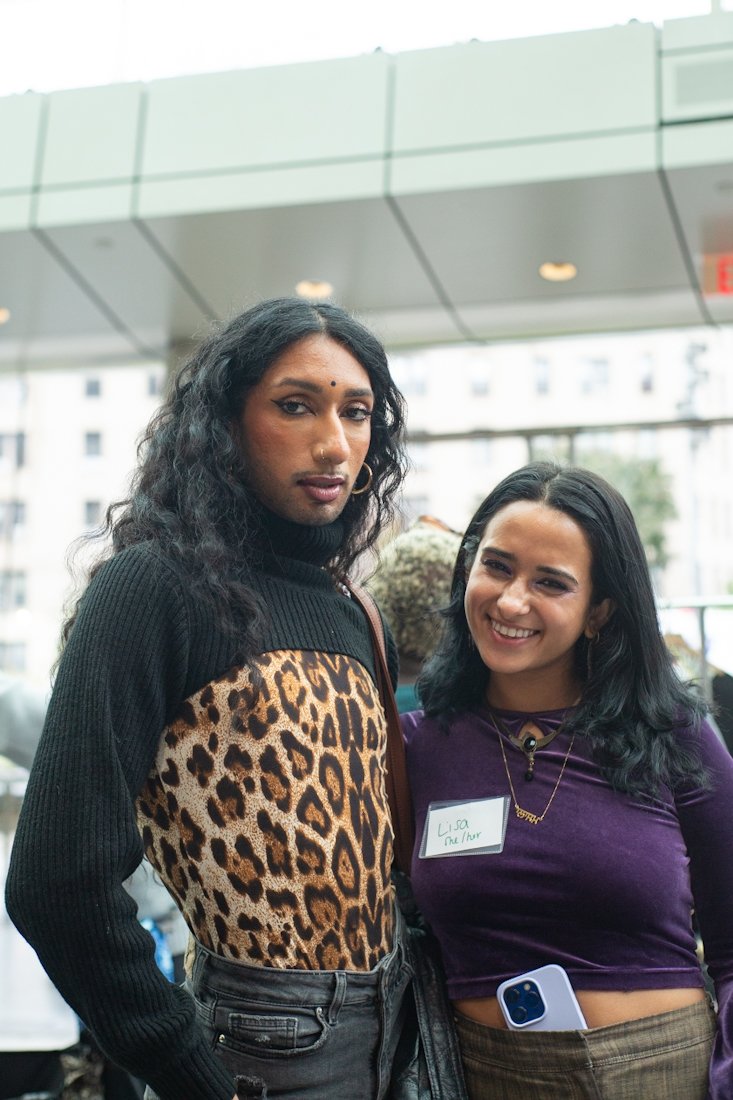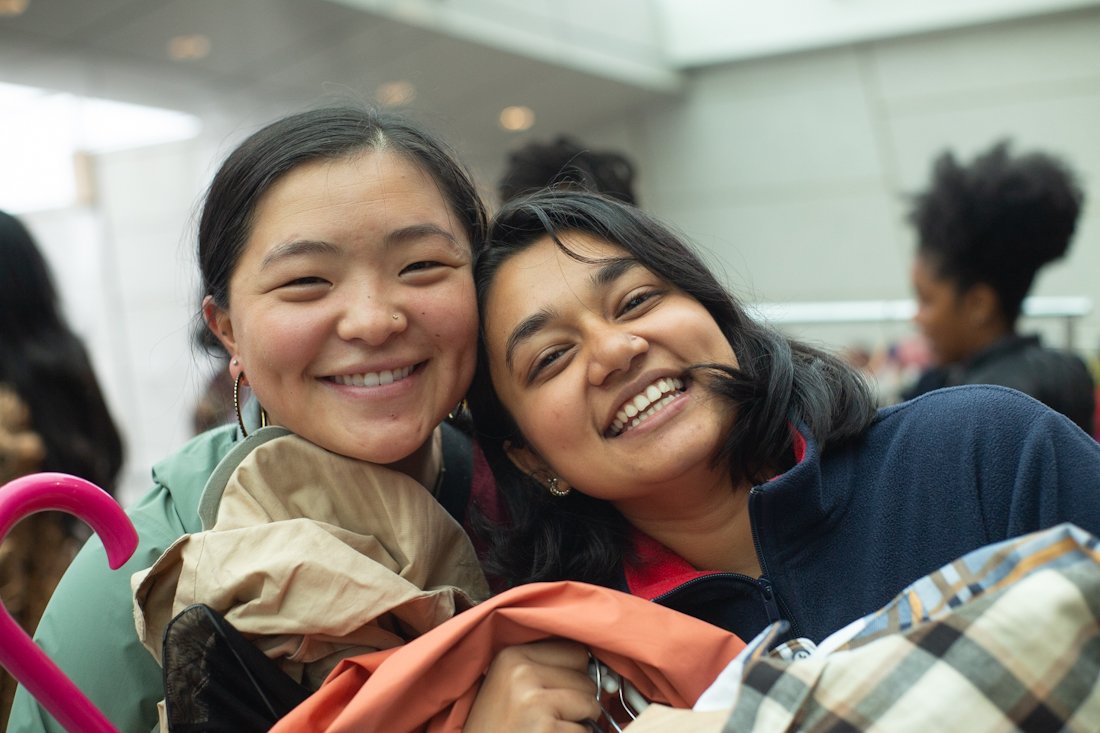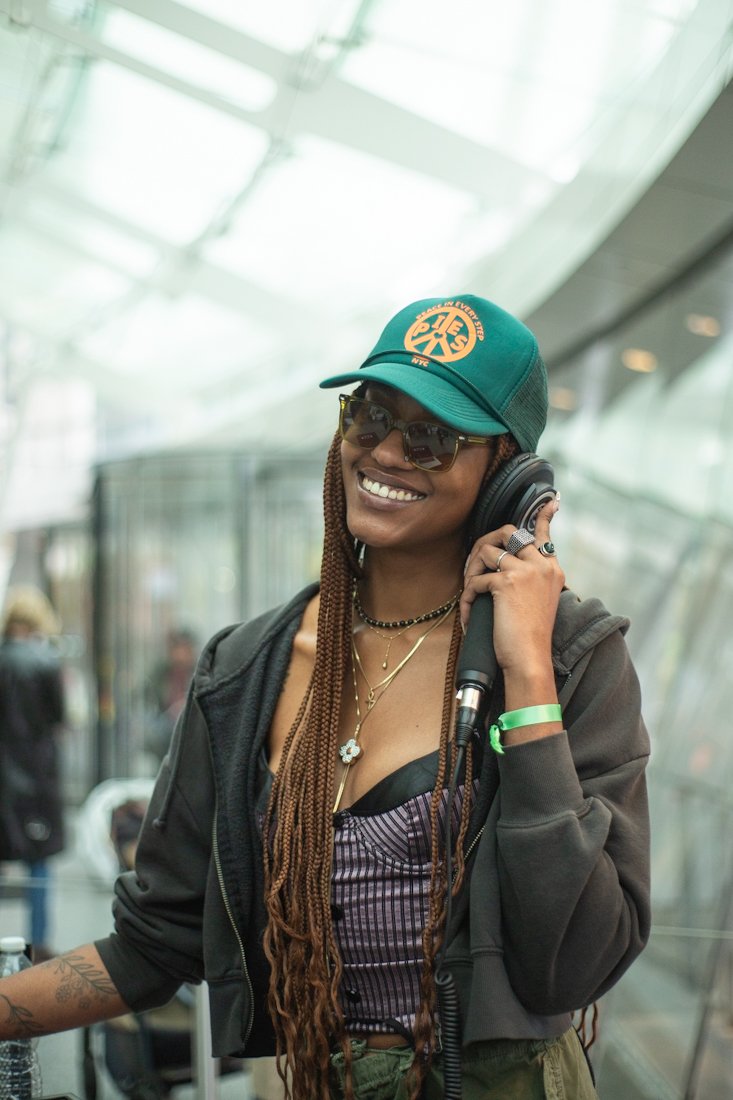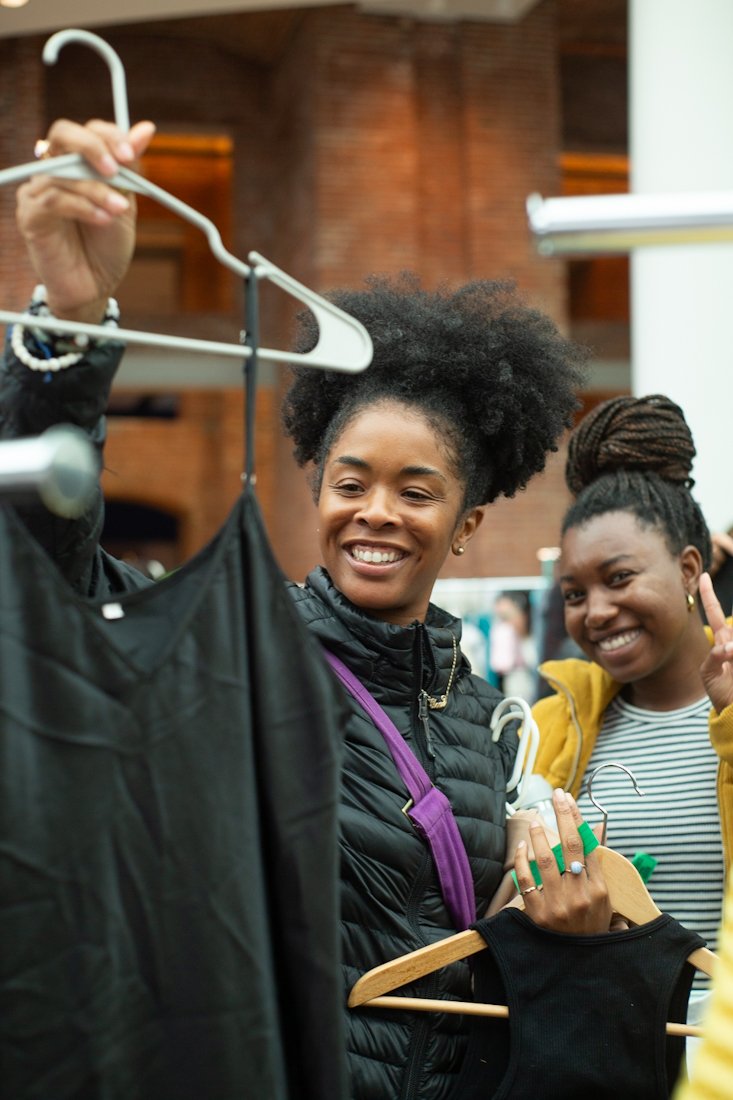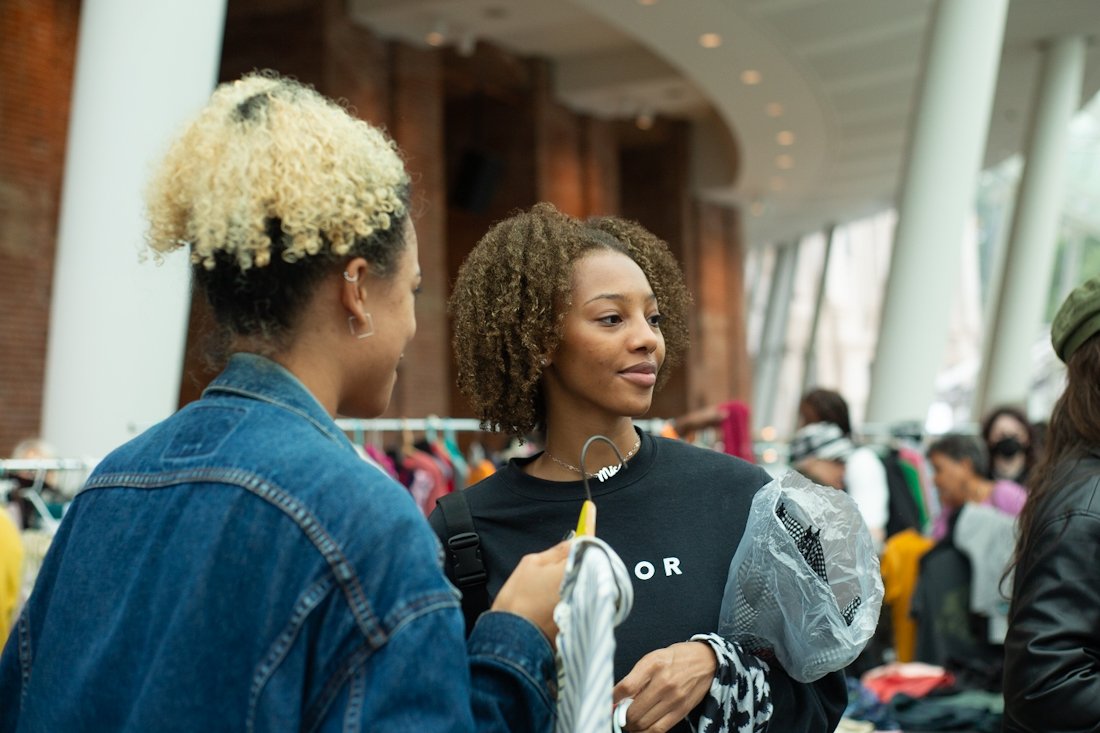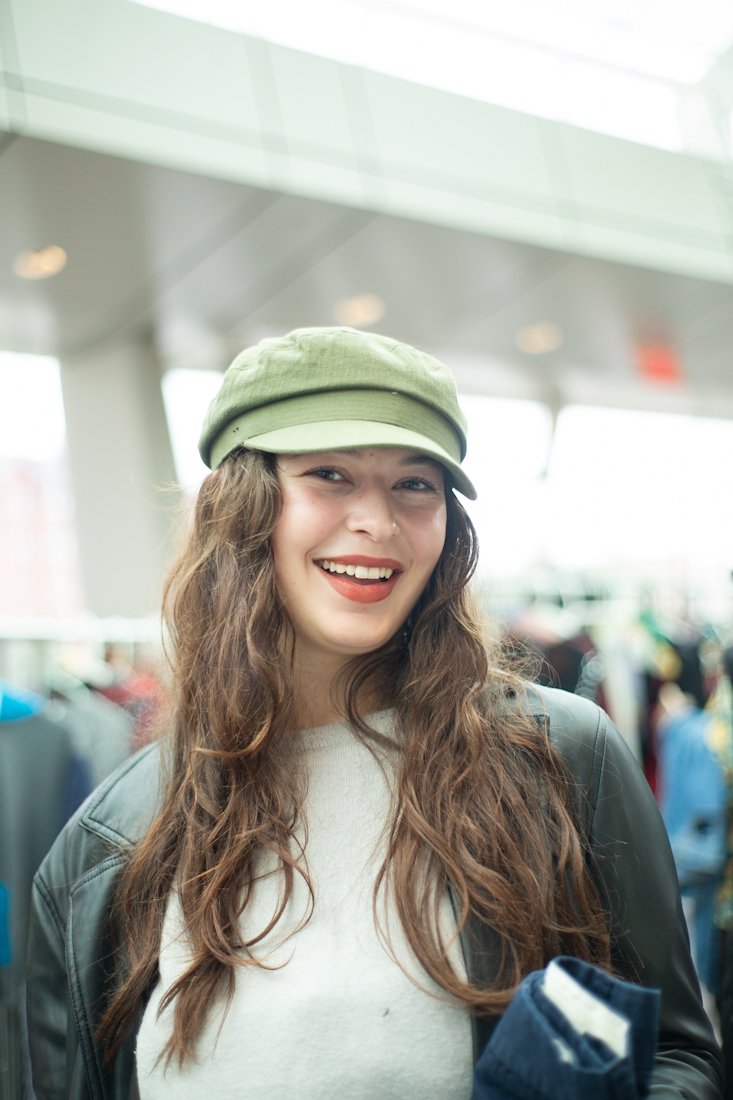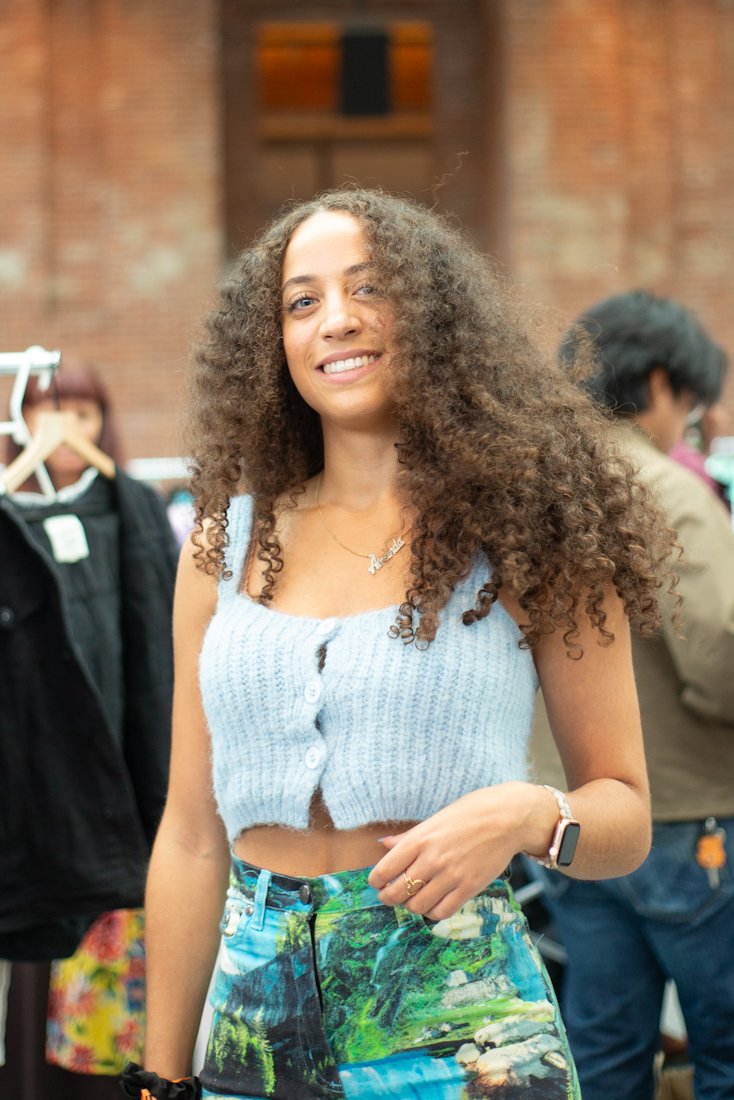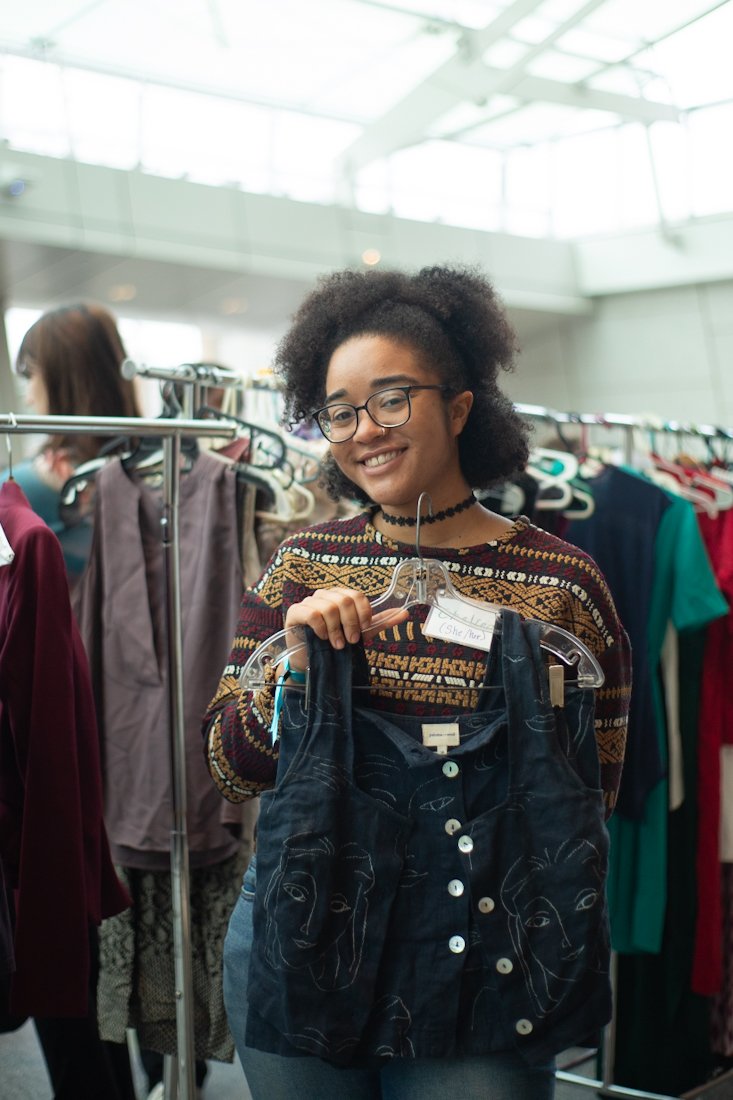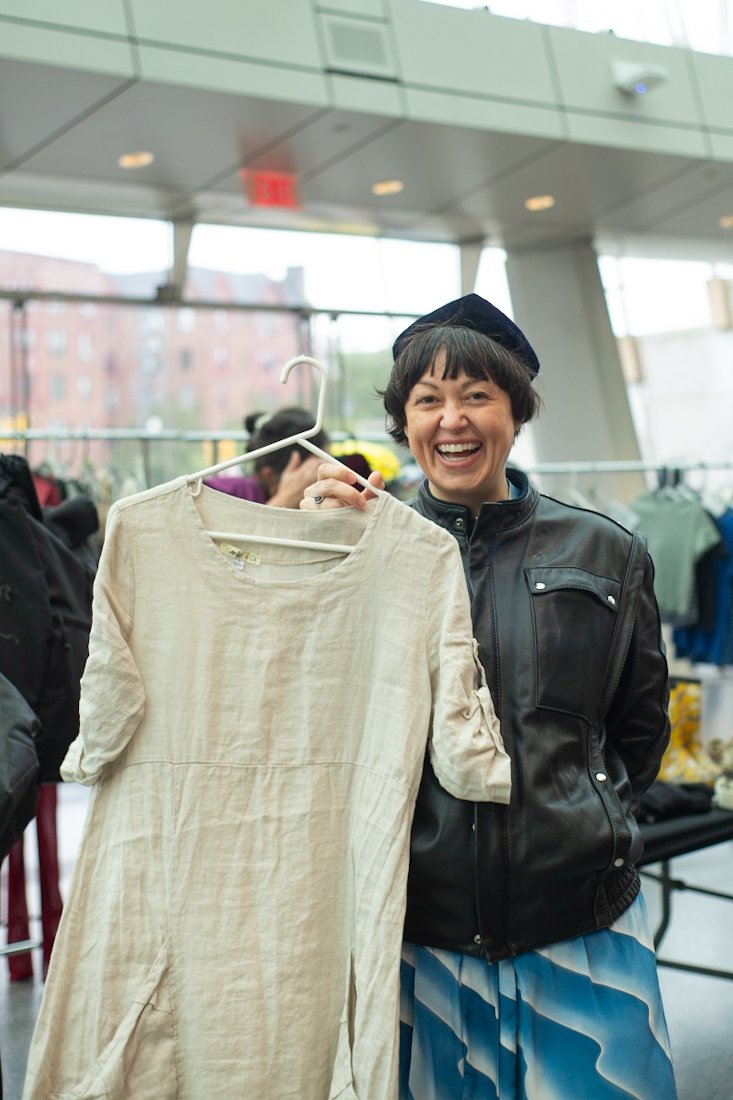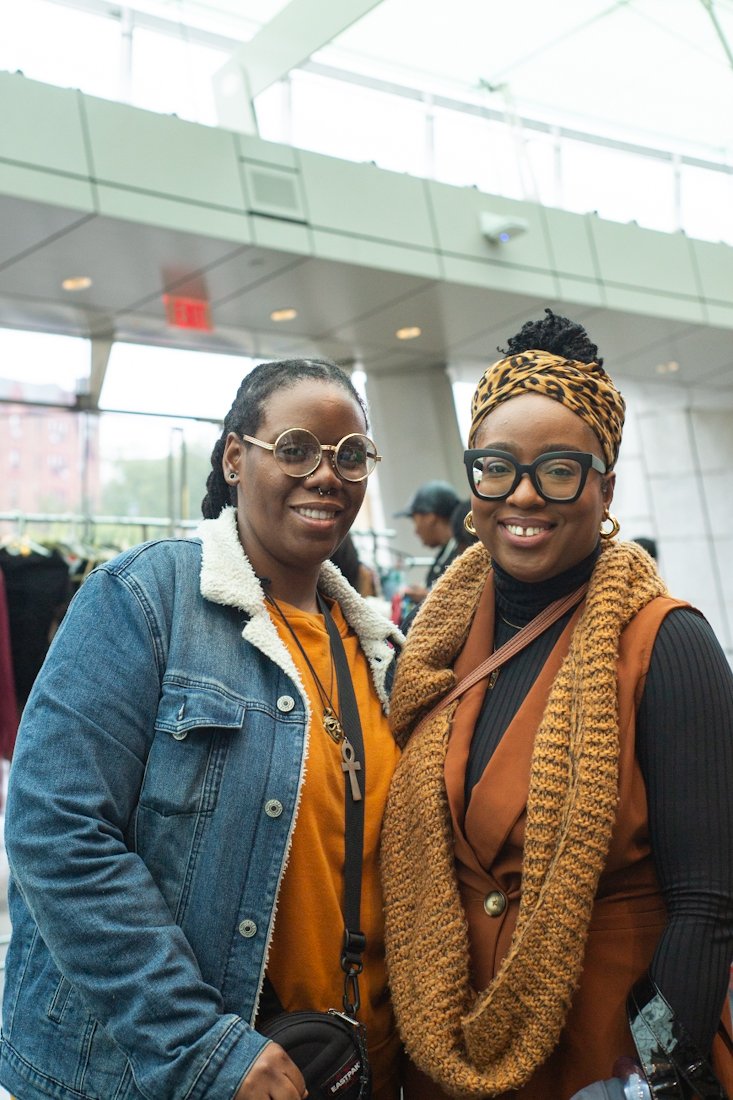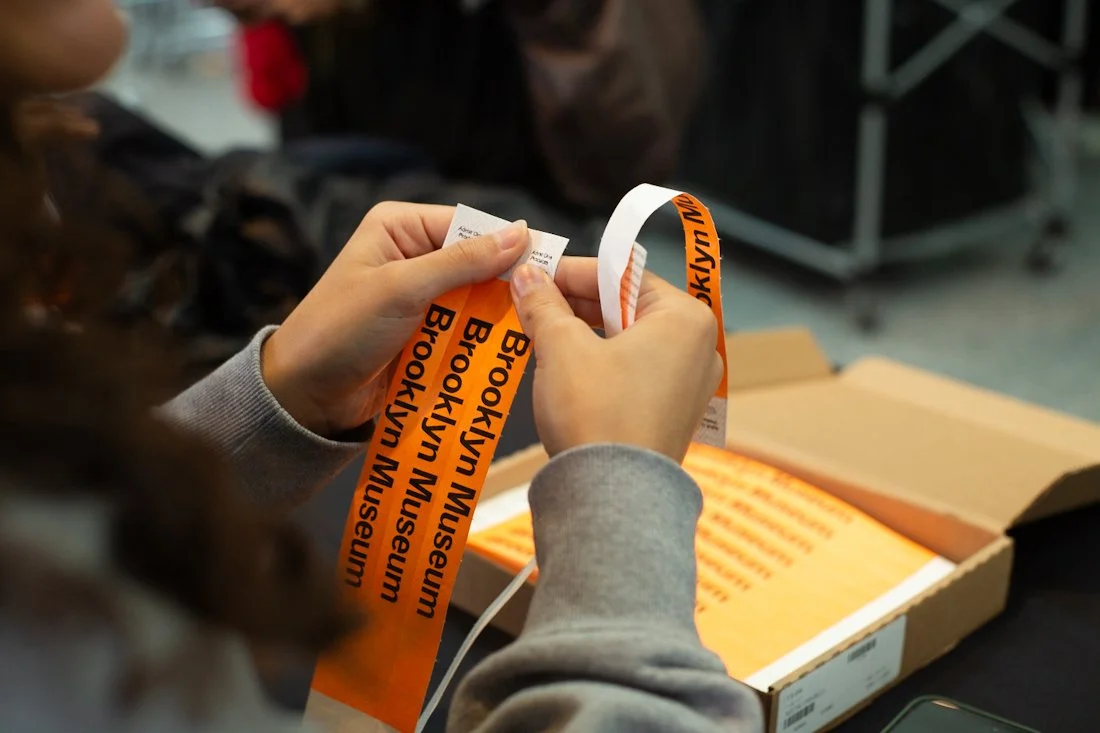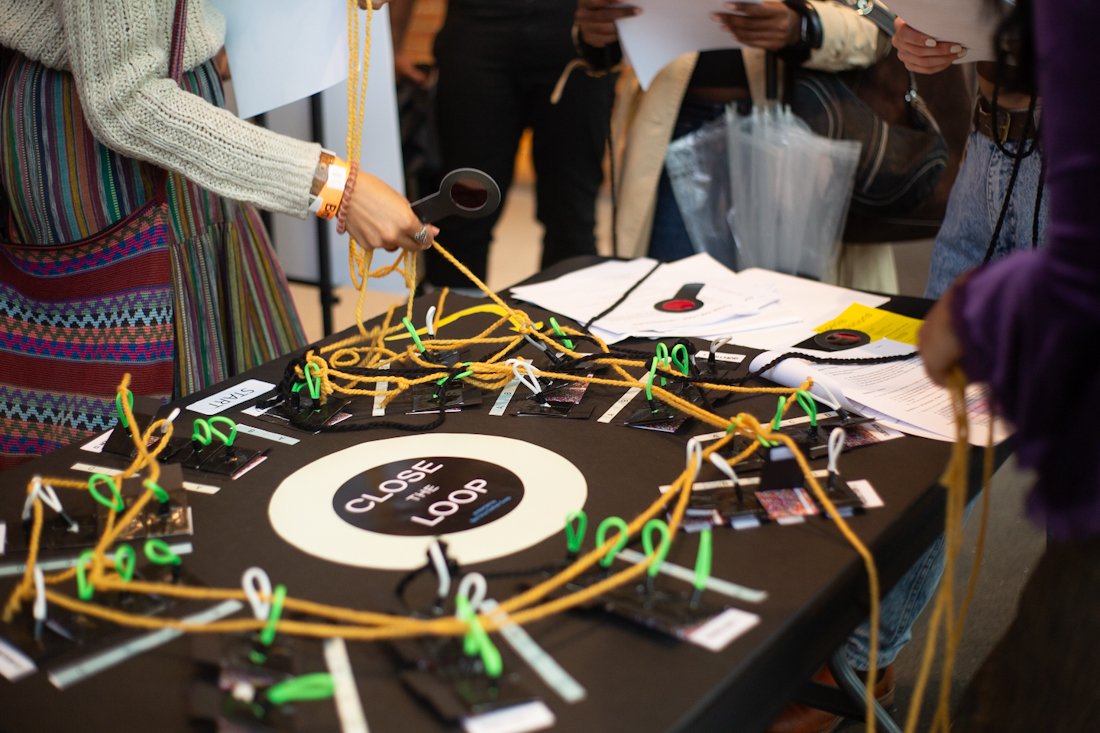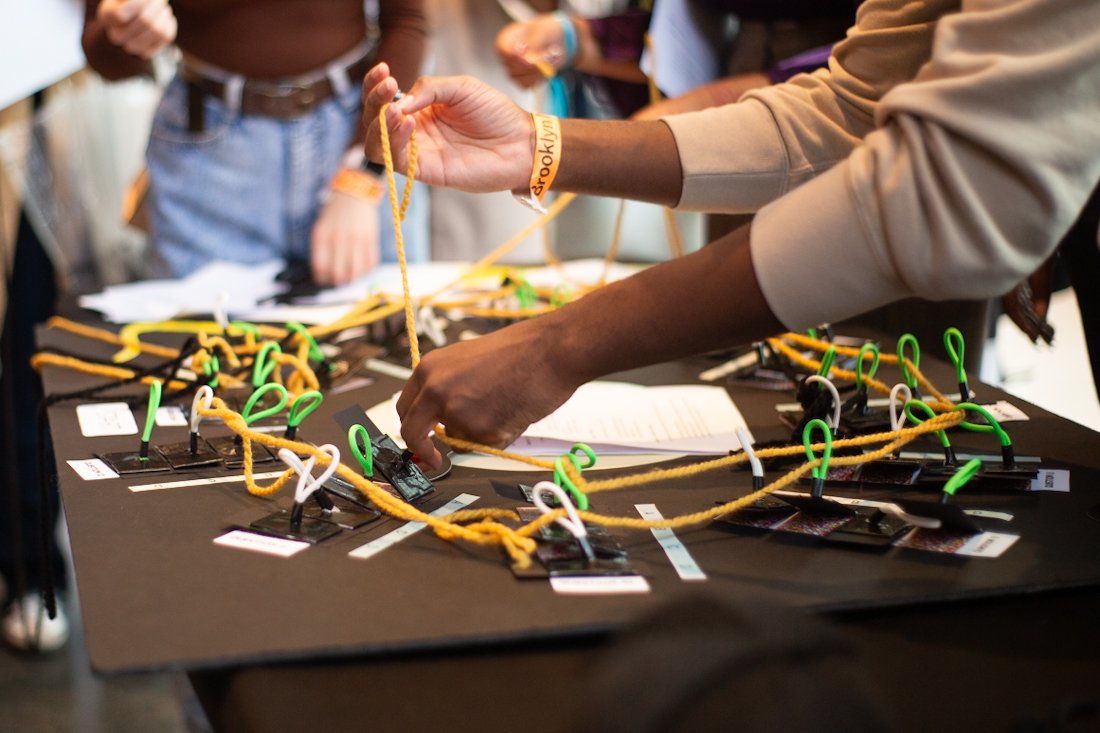Waste No More
The Brooklyn Museum Clothing Swap
Recently, Bed Stuy Clothes Swap (BSCS) and Black Girl Environmentalist (BGE) held a collaborative event at the Brooklyn Museum called “Waste No More: Brooklyn Museum Clothing Swap”. This event was one installment of many events the Brooklyn Museum held to highlight its Africa Fashion exhibit. Since the goal of this event was to provide museum-goers with the opportunity to swap and donate clothes and learn about ways the African fashion economy challenges clothing waste colonialism, it only felt right to also collaborate with Amma from Style and Sustain. Amma’s knowledge and research on waste colonialism in Ghana was the missing link to making this event even more wholesome and grounded in transnational truth.
Our localized work and worlds were bridging connections and linkages that were affirming and healing: different diaspora were speaking to each other about the harms of present-day waste colonialism. Though waste colonialism looked different across our continents, we traced the insidious ways it continues to harm Black and Brown frontline climate burden communities in New York City, New Jersey and Accra. However, even amidst the naming of harm from waste colonialism, a major linkage Amma highlighted for us during our planning sessions was the innovation and sustainability that existed even before the harm of textile waste arrived in Ghana from the Global North.
The moment I heard this reminder, I was left speechless, since the colonial project has always worked tirelessly to hide, silence, erase and snub Black diasporic communities of their innovations. Her reminder brought into perspective the sustainable sharing and circular economies that have always existed in Black and Brown diasporic communities way before colonialism and big corporations arrived on our shores. Our stories, brilliance and ingenuity exist beyond victimhood. For the most part, our survival stories do not start and end with the West and Global Whiteness saving us from harm. Our communities have always had the answers to how we have addressed clothing waste and those answers live in how socially aligned we are with those histories; those practices of sustainability.
“Our stories, brilliance and ingenuity exist beyond victimhood. For the most part, our survival stories do not start and end with the West and Global Whiteness saving us from harm.”
Now flashback to three weeks ago, my team and I finally presented this collaborative vision we shared with Amma as part of our event’s workshop installation. In terms of the installation’s set up, museum-goers and those a part of our event would first watch Amma’s two-part videos to better understand the linkages of our “Close The Loop” game to Africa Fashion and Waste Colonialism and then head over to another section of the museum to engage with our game. Since we also wanted an interactive way to discuss waste colonialism and circularity in our community, this game allowed us to communicate these difficult topics from a space of accessibility and cultural connectivity. Let’s just say I even saw little kids and folks’ grandparents playing the game!
Overall, Close The Loop (our game) introduced to folks how the afterlife of their clothes can create regenerative and wholesome feedback loops. To successfully win the game folks would have to make a full loop with their yarns; the choices players make impact the amount of yarn they have to successfully win. Before folks played the game, they read a pamphlet that introduced them to the backstory of how these transnational connections were even possible. The pamphlet spoke about Kantamanto Market, Kayayei women, the over-saturation of Obroni Wawu (dead white man's clothes) in Ghana and the “faulty clothing waste stream” that exists even in major brands' recycling programs. Additionally, we provided resources on how folks can stay up to speed and informed about the work The OR Foundation is doing in Ghana to address waste Colonialism and re-invent Ghana’s circular economy.
As my team now explores ways to better fine-tune the game for larger audiences, I am still in awe of the collaborative magic and trust we created with Style & Sustain along this journey.
